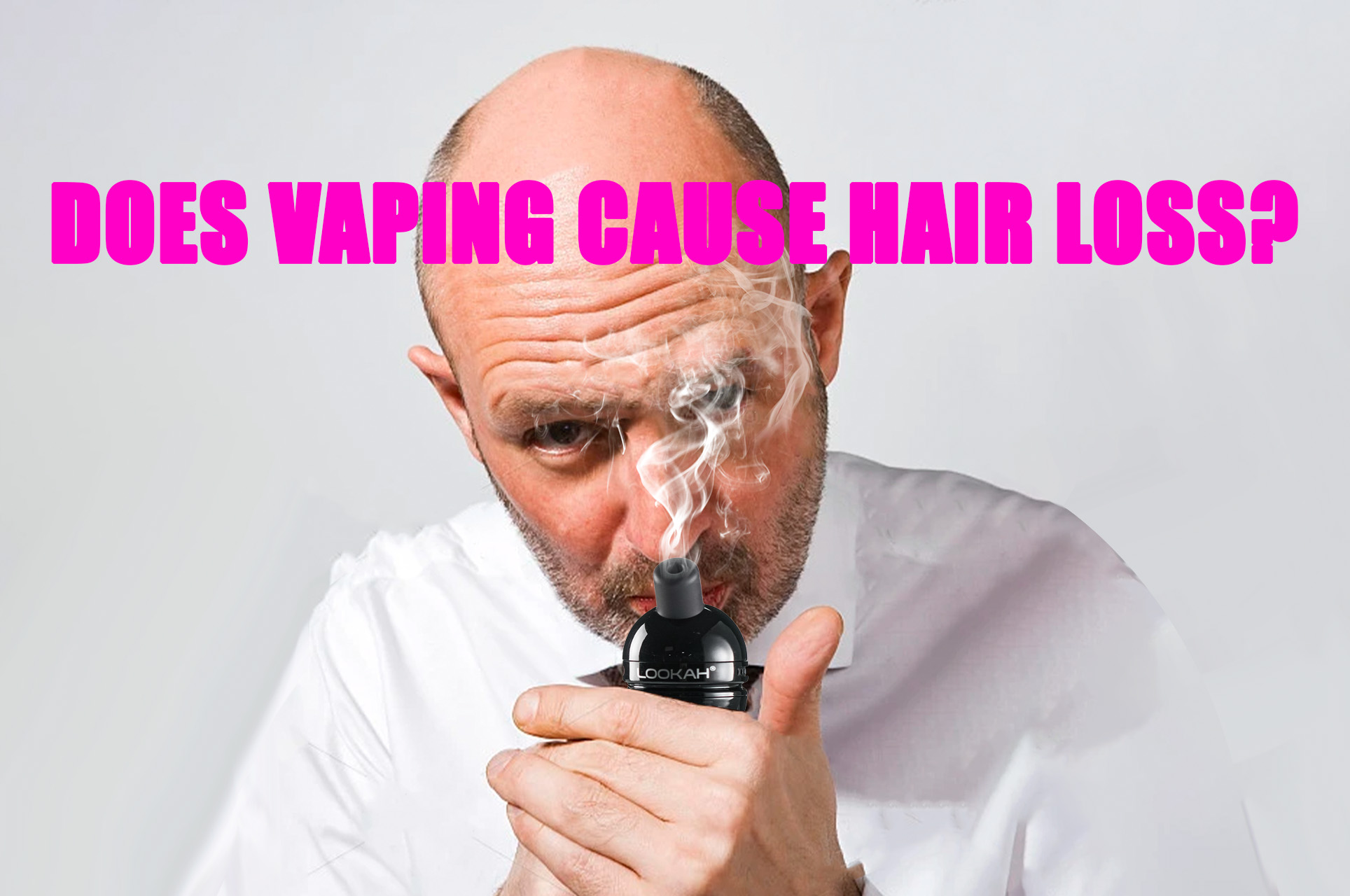
Does e-cigarettes cause hair loss? Why and how can you prevent this?| Fifth Ave Green House
Vaping, the use of electronic cigarettes or e-cigarettes, is becoming increasingly popular as an alternative to traditional smoking.
As vaping becomes more widespread, concerns about its health effects are growing. A particular concern is the possible connection between vaping and hair loss.
The health effects of vaping are currently still being studied. The aim of this article is to examine the existing evidence and clarify whether vaping could have an impact on hair health.
What is hair loss?
Hair loss, which is characterized by the loss of hair on the scalp or other parts of the body, can be due to a variety of factors, including genetic factors, medications, hormonal changes, stress, and even cigarette smoking.
Typically, people lose 50 to 100 hair follicles daily, but problems arise when hair loss exceeds regrowth.
The most common forms include treatable and reversible telogen effluvium and male pattern baldness (androgenetic alopecia), which is permanent and often genetically determined.
Environmental factors such as e-cigarettes can cause reversible hair loss, but genetic diseases, hormonal changes, medications, radiation therapy, stress and certain hair treatments can also contribute to hair loss.
Does e-cigarettes cause hair loss?
The link between e-cigarette smoking and hair loss has not been clearly established, but some studies suggest that e-cigarettes may have similar effects on hair follicles as smoking.
Smoking is associated with increased hair loss. The chemicals and nicotine in cigarettes can damage hair follicles, causing hair loss and baldness.
Even though vaping e-cigarettes is less harmful to your health than smoking, it can still cause hair loss due to exposure to chemicals like nicotine.
Vaping involves inhaling vaporized substances from e-cigarettes, creating the vapor by heating a liquid that often contains nicotine, flavorings and other chemicals.
Vaping also exposes smokers to many of the same chemicals as smoking, so it likely contributes to hair loss in a similar way.
Why does e-cigarettes cause hair loss?
As with traditional cigarette smoking, vaping raises concerns about its potential health effects, including possible links to hair loss.
Although research directly linking e-cigarettes and hair loss is limited, several mechanisms could explain this link:
Nicotine and narrowing of blood vessels
Nicotine, a common ingredient in e-liquids, can cause blood vessels to constrict, reducing blood flow to hair follicles. T
This can lead to less oxygen and nutrients, which are important for hair growth, and over time, lead to hair thinning or thinning.
Oxidative stress
Nicotine can increase the production of free radicals in the body and lead to oxidative stress.
This imbalance between free radicals and antioxidants can negatively impact the cells in hair follicles and disrupt the hair growth cycle
Hormonal effects
Some studies suggest that nicotine intake could increase androgen levels in the body.
Androgens like testosterone are hormones that regulate various body functions, including hair growth.
Elevated androgen levels can trigger or worsen conditions such as androgenic alopecia, commonly known as pattern baldness
Inflammation and hair follicle health
E-cigarettes have been linked to pneumonia, and it is possible that similar inflammatory reactions can affect the scalp and hair follicles, leading to hair loss
Nutrient deficiency
Prolonged nicotine consumption can lead to a deficiency of nutrients in the body, including vitamins and minerals necessary for healthy hair growth.
This can lead to weakened hair and an increased risk of hair loss
How to reduce hair loss from smoking e-cigarettes?
Although e-cigarettes have some health effects and can cause hair loss, it is relatively healthier for those who cannot quit smoking. To help you vape healthier, here are some practical tips:
1. Reduce steam intake
- Avoid big moves: Limit the amount of vapor inhaled at one time to control nicotine intake.
- Monitor your usage: Keep an eye on your puffs to maintain comfortable nicotine levels.
2. Reduce nicotine intake
- Choose devices with low nicotine levels: Opt for e-cigarettes with lower nicotine content.
- Consider 0 mg Vapes: If you want to avoid nicotine completely, use 0 mg vapes, which are available for those who want to take a quick hit without consuming nicotine.
3. Buy high-quality e-liquids
- Buy from reputable sellers: Choose e-liquids from reputable suppliers with high-quality ingredients.
- Ensure strict quality control: Make sure the e-liquid is produced under strict quality standards.
4. Avoid low-quality pods or disposable items
- Opt for refillable devices: Prefer reusable devices over disposable devices to avoid potential risks.
- Avoid inconsistent quality: Avoid products with unreliable quality control to ensure a safer vaping experience.
5. Choose alternatives
Consider switching to less harmful nicotine alternatives, such as nicotine gum or nicotine patches, which contain fewer harmful chemicals than e-cigarettes and can help curb cravings.
Diploma
Although there is no clear direct link between e-cigarettes and hair loss, the presence of nicotine and other chemicals in e-cigarette products can have indirect effects on overall health and may also affect hair health.
More research is needed to fully understand the connection between vaping and hair loss.
Until then, those concerned about the health of their hair would be wise to consider the potential risks associated with vaping.
By the way, read our other article: Is vaping a sin? Exploring Christian Perspectives and More!

Post a comment: